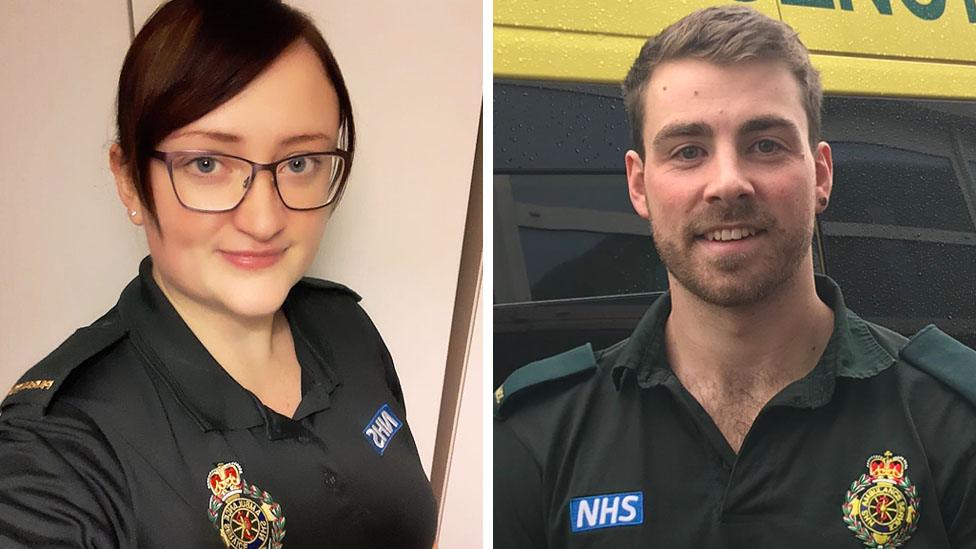What it's like being a Christmas mental health volunteer
- Published

"It means a lot to me to be able to make people feel like they don't need to be on their own in those moments, that there is a way out."
For Sarah Chadwick, the Christmas period is not just about family, food and fun.
The 24-year-old is a volunteer for mental health charity Samaritans, and like previous years, will be balancing festive celebrations with talking to people most in need.
"It can be challenging, but most of the time it's so rewarding. To have people confide in you, trust you with their thoughts and feelings, it's a privilege," she tells Radio 1 Newsbeat.
'The only thing we can do is be there'
The Samaritans says it expects to be contacted more than 250,000 times through the festive period. Through the year, volunteers normally respond to around 10,000 calls a day.
Sarah, from Preston, is driven by the memory of her friend, who took her own life a few years ago aged 18, and doesn't want "anyone to be in that situation".
She admits "a feeling of apprehension" before the phone rings because of the "range of calls" that could come up.
"Before I became a Samaritan, I didn't know if I'd be able to do this. But it comes naturally and you realise it's just a conversation with another human being."
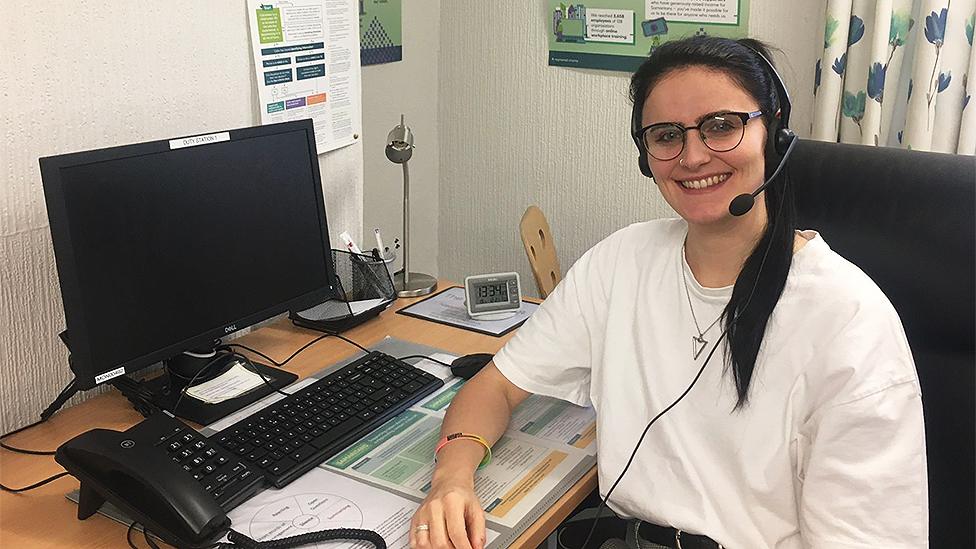
Sarah has volunteered on Christmas Day before and says it can sometimes "be difficult" to switch between personal celebration and being professional at work
She says it "can be really heartbreaking and difficult" because there's nothing you can practically do to make a difference.
"But the only thing we do is just be there for people at any hour to speak to."
For Jodie, the main thing is making sure the caller feels "as comfortable as possible".
She works as a suicide prevention advisor for HopelineUK, part of the Papyrus charity for the prevention of young suicide.
"Whilst recognising there is part of them that may want to die, part of them is also reaching out for support."
She adds "different calls can touch us in different ways" - but it's more about the people who call and not as much about their own feelings.
'A heightened sense of loneliness'
Loneliness as a reason for calling is "a common theme" but more so in the pandemic, Jodie says.
Calls, texts and emails to the Papyrus Hopeline UK increased by 25% over the Christmas and New Year period last year, with a similar amount expected this year.
"What we see at Christmas is that people tend to feel a lot of pressure. And it's typically a time you spend with those close to you or there's a lot of pressure in terms of money."
Christmas time can have a "heightened sense of loneliness" because it's hard to escape the message around joy and family.
Five mental health tips to help deal with lockdown
'You're not alone'
Christmas will be a time where people or their loved ones may feel quite alone and isolated, so from her own experience, Adrienne Rennie suggests talking to someone.
The 26-year-old from North Lanarkshire is a media volunteer for Samaritans, which means she doesn't speak to people calling the helpline, but shares her own experiences.
When she was 21, she called the Samaritans at 3am one day and remembers "staring at my phone and thinking 'I can't believe I'm about to do this.'"
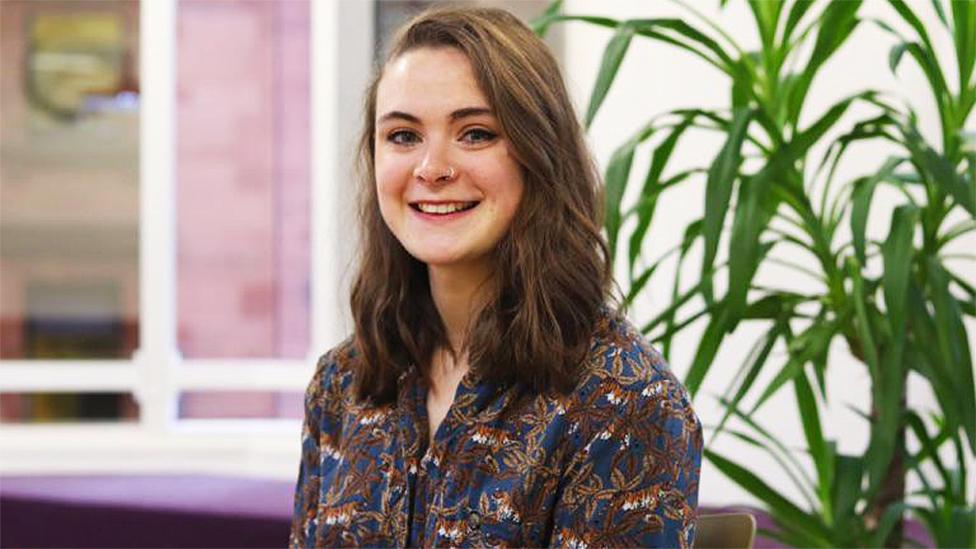
For those who may be self-isolating due to Covid, Adrienne says it's important to call family, even if that is over Zoom
She felt a stigma attached to mental health - but once she called and someone answered, all those preconceived ideas disappeared and she was able to "speak freely".
Adrienne admits feeling "isolated and socially withdrawn" at that moment in time, thinking "nobody wants to help me and you don't deserve help".
"Just press the call button, nothing bad is going to happen and you'll have someone there to listen to you."
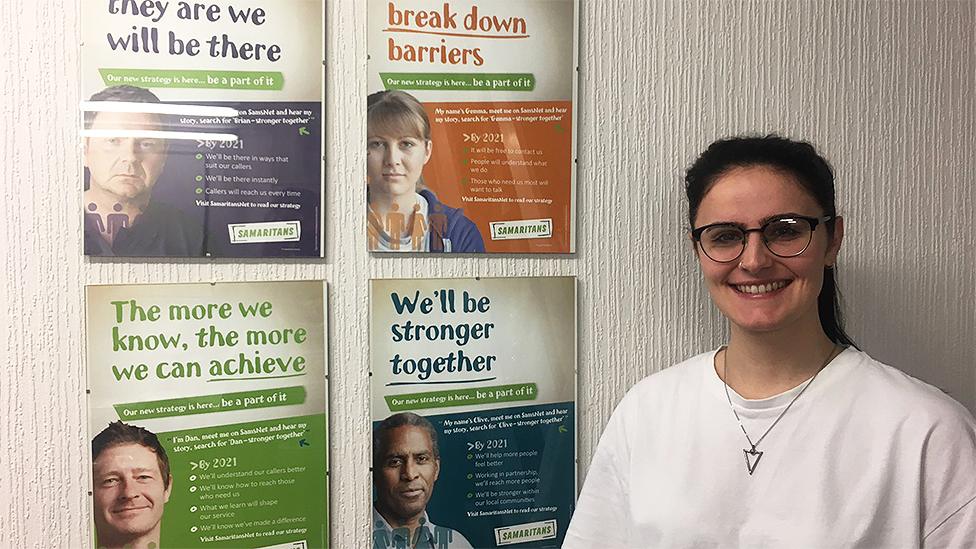
Sarah says there "are some calls that stay with you" but there's support in place to help volunteers
Jodie says isolation and loneliness is one of the most difficult feelings to have "because it enhances everything else you have going on in life".
"You're not alone in feeling alone. And that support comes in in different ways."
"So connecting with people in any way that you can, is a really important part of looking after yourself, keeping yourself distracted and ultimately safe."
For more help and support, you can visit the BBC's Action Line


Follow Newsbeat on Instagram, external, Facebook, external, Twitter, external and YouTube, external.
Listen to Newsbeat live at 12:45 and 17:45 weekdays - or listen back here.
- Published6 September 2020

- Published14 October 2020
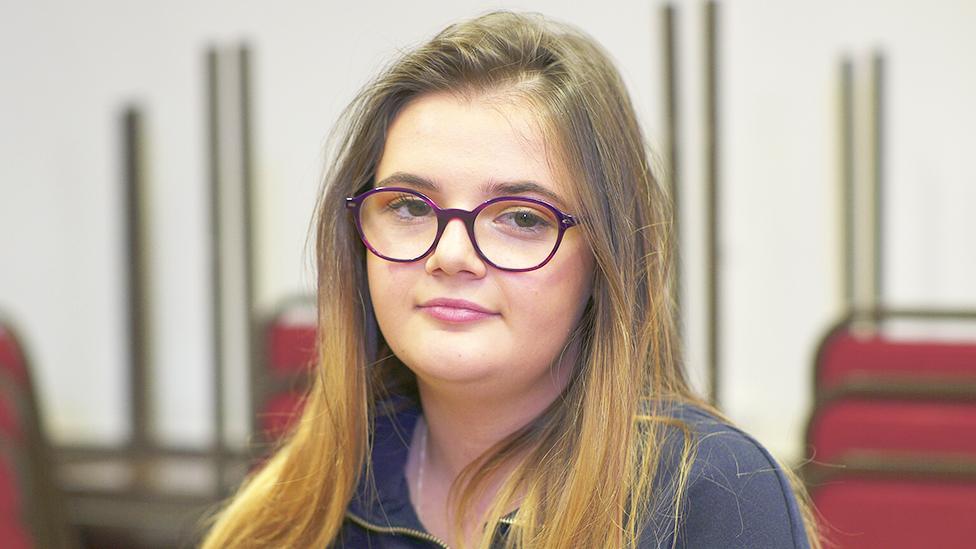
- Published24 April 2020
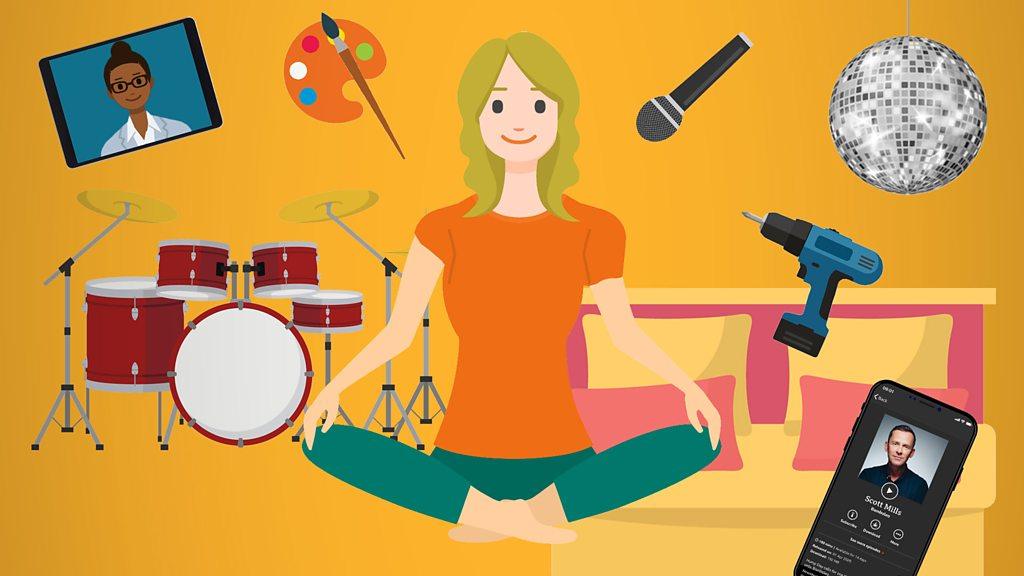
- Published30 October 2020
